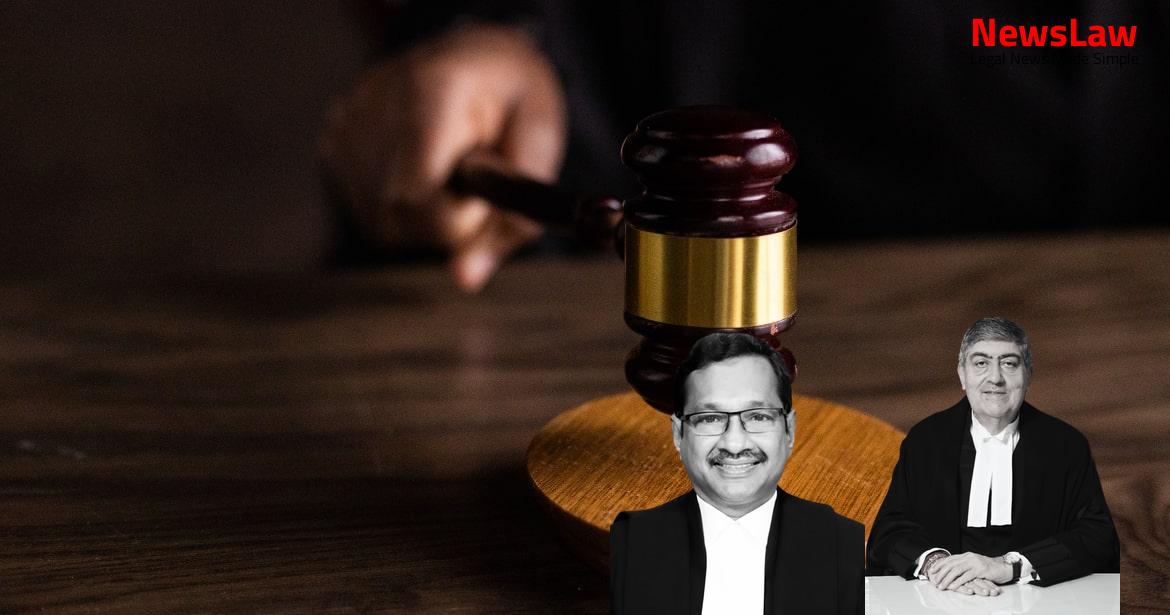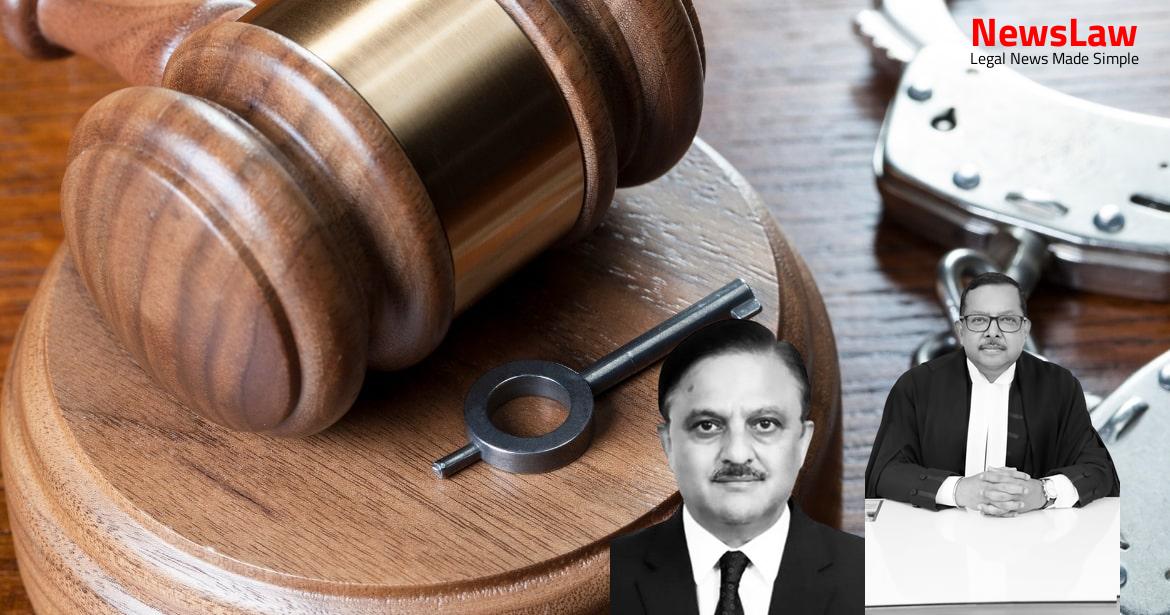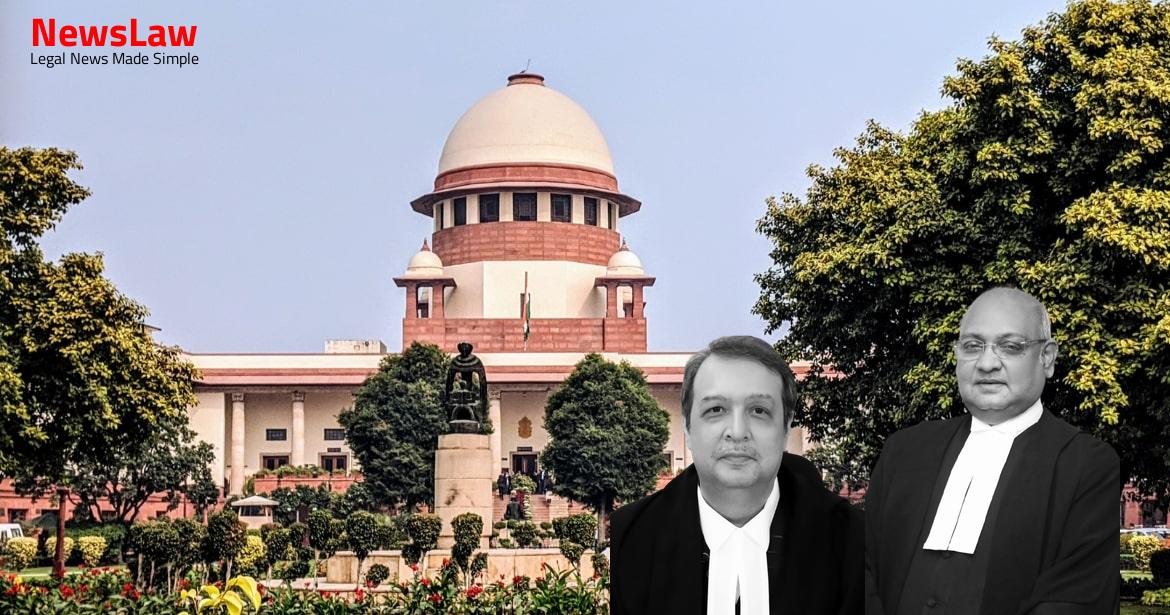In a recent legal case, the court delves into the complex interplay between privacy rights and national security concerns. The analysis focuses on the implications of surveillance allegations, highlighting the need to strike a balance between individual privacy and the State’s duty to safeguard national security. Stay tuned to unravel the court’s nuanced legal analysis on this critical matter.
Facts
- Respondent-Union of India denies the allegations of cyberattack and spyware use.
- Minister of Railways, Communications and Electronics and Information Technology stated in Parliament that the reports had no factual basis.
- NSO contradicted many claims in the Amnesty report.
- Indian legal regime regarding surveillance is rigorous and prevents illegal surveillance.
- 17 journalistic organizations released findings on alleged Pegasus software use.
- 10 Indians’ devices allegedly analyzed to confirm Pegasus presence.
- Global actions and diplomatic engagements followed the reports.
- Certain Petitioners seek an independent investigation.
- Limited affidavit filed by Additional Secretary of Ministry of Electronics and Information Technology denying allegations.
- NSO sells Pegasus software to vetted governments and law enforcement agencies only.
- WhatsApp vulnerability allowed Pegasus infiltrations in 2019.
- Another spyware campaign targeting individuals in India uncovered in 2020.
- Limited affidavit filed reserved the right to file further details later.
Also Read: Electoral Malpractices in Mayor Election
Arguments
- The petitioner claims she was unable to publish her newspaper due to surveillance from 6-8-2019 to 11-10-2019
- The Respondent-Union of India asserts there are statutory mechanisms in place to prevent unauthorized surveillance
- A suggestion is made to constitute an Expert Committee to investigate the surveillance allegations
- Concern is expressed over inaction by the Respondent-Union regarding a cyberattack
- Petitioner’s fundamental rights, including privacy and freedom of speech, are highlighted as being violated
- The issue of lack of specific denial by the Respondent-Union is raised
- The responsibility of the State to protect citizens from cyber threats, especially from foreign entities, is emphasized
- Court expresses dissatisfaction over the limited affidavit provided by the Respondent-Union, indicating further time may be given for more information
- National security concerns are raised by the Respondent-Union regarding the inquiry into surveillance allegations
- Different perspectives on surveillance for national security versus privacy rights are discussed
- Debate over forming an independent Committee to probe allegations due to credibility concerns
- The objection to allowing the Respondent-Union to form a Committee due to independence issues is mentioned
- Concerns over potential misuse of spyware and implications for privacy are highlighted
- Discussion on the need for a special Committee or Special Investigation Team to investigate the allegations
- Assurances are made to protect sensitive national security information from public disclosure
- Mr. Shyam Divan, learned senior counsel for the Petitioner, raised concerns about the potential use of the software to plant false evidence and implicate individuals.
- There were requests for an interim order directing the Cabinet Secretary to provide specific information in an affidavit.
- Other senior counsels sought independent investigations into the allegations of Pegasus software use either by constituting a Special Investigation Team or a Judges’ Committee.
- Concerns were raised about the alleged use of Pegasus on citizens and the necessity for transparency in the investigation process.
- Actions of foreign governments in response to similar spyware attacks were cited to emphasize the seriousness of the allegations.
- It was mentioned that technology can be both used and abused, and legal mechanisms exist to regulate its use.
- Historically, privacy rights have been more focused on property than individuals.
- A suggestion was made for the Respondent-Union of India to form an Expert Committee under the court’s supervision.
Also Read: Balancing Power and Transparency: Electoral Bonds Struck Down, Disclosure Mandated
Analysis
- The Court has appointed a Technical Committee to investigate allegations of spying using the Pegasus suite of spyware.
- The Committee comprises experts in cyber security and digital forensics, overseen by a retired Supreme Court Judge.
- The Respondent-Union of India’s plea to appoint an Expert Committee was declined to avoid bias.
- Several petitions were based on media reports and lacked substantial evidence.
- The Pegasus spyware can infiltrate devices and compromise data without user action.
- Protection of journalistic sources and press freedom in a democratic society is crucial.
- The Court aims to uphold constitutional aspirations and the rule of law without being swayed by political rhetoric.
- Efforts have been made to select renowned experts for the Committee’s impartial investigation.
- The Court emphasizes the importance of thorough investigation before taking any legal action.
- The Committee’s terms of reference include examining the use of Pegasus on Indian citizens and enhancing cybersecurity measures.
- The Court highlights the limited scope of judicial review in matters related to national security.
- Privacy is a constitutionally protected right emerging primarily from Article 21 of the Constitution.
- Privacy is not an absolute right and must be balanced with other concerns such as security.
- The right to privacy is directly infringed by surveillance or spying, whether by the State or external agencies.
- Laws justifying an encroachment on privacy must meet a threefold requirement.
- The State must put in place a robust regime to protect privacy while serving legitimate State interests.
- The law must be fair, just, and reasonable when interfering with an individual’s right to privacy.
- Proportionality and legitimacy are essential facets ensuring that privacy is not disproportionately invaded.
- Instances of intrusion on privacy must be evidence-based and proportional to protecting national security.
- Judicial proceedings should involve both parties presenting all relevant information before the Court.
- Privacy rights should not thwart security measures but demand oversight and regulation.
- Freedom of the press is related to the concerns of privacy and is vital for democracy.
- The State must provide relevant information in proceedings related to fundamental rights for complete justice.
- The burden of protecting fundamental rights primarily lies with the State to ensure fair judicial proceedings.
Also Read: Recall of Resolution Plan Approval: Legal Analysis
Decision
- The Court may make ad-hoc arrangements as interim measures for the protection of citizen’s rights until the Parliament fills up any gaps or deficiencies.
- The Committee may also address any other related matters that it deems appropriate.
- The matter will be listed for further review after 8 weeks.
Case Title: MANOHAR LAL SHARMA Vs. UNION OF INDIA (2021 INSC 682)
Case Number: W.P.(Crl.) No.-000314 / 2021



